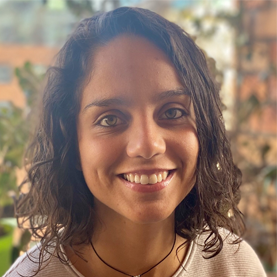Hosted by Dr. Alberto Villoldo
1. Passport
A valid passport is required for entry into Peru. All participants should carry a second form of photo ID, such as a driver’s license, as well as a photocopy of the personal data page of your passport. A copy of your passport is the easiest way to prove your identity if you happen to lose your passport.
US citizens are automatically given a ninety-day visa upon entry to Peru. If you are travelling with a passport from a country other than the US, you can please contact the Peruvian Consulate nearest you to inquire about visa requirements. You can also check the requirements for each country by logging on to http://www.peru.embassyhomepage.com/. Upon entering Peru, you will receive your visa.
The visa is a small piece of paper that you can keep inside your passport. Please make sure you SAVE this visa as you will need it when you exit the country.
2. Flights
You are responsible for booking your own flights to Cuzco, Peru. And, if you arrive before the starting date of the expedition, you are also responsible for your transfer from the airport, hotel accommodations before the trip starts, and transportation to the Sonesta Posada del Inka hotel in Yucay, Sacred Valley, where the group is meeting.
As soon as you book your flight, please use the following link to provide us with your flight details and emergency contact information.
Flight Information Form Links: Sacred Valley Extension
3. Travelex Insurance
The Four Winds Society STRONGLY recommends that you purchase travel insurance to protect yourself in case extenuating circumstances force you to cancel your trip. If for some unforeseen reason you must cancel your journey, your deposit is non-refundable. One option is Travelex Insurance, which offers Trip Cancellation, Trip Interruption, Trip Delay and Baggage insurance. We suggest you purchase travel insurance within three weeks of your initial trip deposit for the best coverage.
For complete details, please visit: www.travelexinsurance.com or call customer service at 1-800-228-9792 Monday-Friday 8:00 a.m.-7:00 p.m. CST. Please refer to Location 09-0821.
4. Extra Nights
If you are arriving before the expedition start date, or staying on afterwards, we recommend the following hotels:
Sacred Valley: Aranwa Sacred Valley Hotel & Wellness, Antigua Hacienda Yaravilca, Huayllabamba, Urubamba. Phone: 011-51-84-58-1900 Email: [email protected]m Online reservations: http://www.aranwahotels.com/en/sacred-valley/
Lima Airport: Costa del Sol Wyndham: It is located at the International Airport Jorge Chavez.
Phone Number: 011-51-1-200-9200 or #011-51-1-711-2000
Email is: [email protected] / [email protected]
Online reservations: www.wyndhamhotels.com or www.costadelsolperu.com
Lima City: Sonesta Hotel El Olivar: It is located at the Pancho Fierro Street #194, San Isidro – Lima, Peru.
Phone: 011-51-1-712-6060
Email: [email protected]
Online reservations: http://www.sonesta.com/Lima
Cusco: Sonesta Hotel Cusco: It is located at the Av. El Sol 954, Cusco, Peru.
Phone: 011-51-84-58-1200
Email: [email protected]
Online reservations: http://www.sonesta.com/Cusco/
5. Meals
During camping days, all meals will be provided as well as fresh fruit to carry in your daypack. Meals are simple, healthy and delicious. You will have plenty of food and any dietary needs such as vegetarian and gluten-free should be easily accommodated.
During days at the Sacred Valley, daily breakfast at the hotel is included. Most days we will be hiking during lunchtime and a light picnic lunch will be provided at no additional cost; please feel free to bring power bars or other organic healthy snacks. Dinners and some lunches are not covered; the typical cost for a lunch or dinner ranges from US $15.00 to US $20.00. If you choose to eat at the hotel, your meals will be charged to the credit card on file for your room at the hotel and must be paid when you check out.
6. Water
Drinking water will be provided in the camp. You will need to bring at least one water bottle to fill and carry with you. You may also want to bring a bottle for hot tea in the mornings or evenings.
7. Supplements and special dietary products
Please be sure to pack supplements you are taking and any special dietary products such as protein powder mix, tea, or other packaged goods that are absolutely essential to your diet. Please check with the Peruvian Consulate if these products can be brought into Peru.
8. Prescription medications
If you take prescription medications, be sure to bring enough for your travels. Containers should be clearly labeled with prescription forms to avoid problems at Customs. Please bring a sufficient supply of any personal medications you take! We will bring a basic medical kit and other medical supplies, but it is helpful when you are able to tend to basic daily medical needs. Below is a list of items to consider, bring whatever you would use at home. Consult your physician if you have specific concerns before you travel.
- Cipro (Rx) for intestinal bacteria
- Diamox (Rx) for high elevation mountain sickness
- Azithromycin(Rx) for URIs or respiratory infections
- Robitussin cough suppressant
- Pepto Bismol
- Antibiotic cream (Neosporin)
- Ibuprofen or Naproxen
- Decongestant
- Lubricating eye drops
- Herbal and holistic remedies for throat and stomach discomfort
- Ricola, Cepacol for dry and scratchy throats
- Stool softeners: Colace, Swiss Kriss, Dulcolax
- Treatment for diarrhea: Lomotil, Imodium
- Muscle Calm is recommended to help ease sleeplessness. It’s a natural alternative to other sleep aids which are not advised at high elevation
9. Personal Hygiene while on the mountain
While on the mountain we will not have showers or baths. Water for basic washing up and brushing teeth will be available. The packing list includes suggestions for wipes to do some sponge bathing along the way. Chemical toilets will be available in the camp. Remember, you must carry out whatever you carry in.
10. Health and safety
You can visit the CDC website for information about traveling to Peru, including vaccinations you may need to have: https://wwwnc.cdc.gov/travel/destinations/traveler/none/peru. Keep in mind that the Four Winds Society cannot offer medical advice. It is best that you consult with your primary care physician, who knows your medical history and can best advise you.
Most illnesses while traveling are caused by contamination of food or water. Drink only bottled water and do not use ice cubes unless you know them to be safe. Freezing does not kill bacteria. Do not drink from the streams. Eat only cooked foods and fruits with peel. Avoid food from sidewalk vendors. Our hotels all have excellent hygiene and food preparation practices.
Hydration is the key to avoiding altitude sickness. We recommend you drink at least two full liters of water per day. Drinking wine or beer will dehydrate you, so limited consumption is strongly advised. Emergen-C Packets (containing vitamins and electrolytes) and simple Electrolyte Packets can be added to bottled water to assist hydration. If you experience sleeplessness it might be caused by dehydration; drink more water immediately.
Please note:
- We recommend purchasing Emergency Evacuation Insurance from Travelex or any other Traveling Insurance Company.
- We will have an emergency med-evac vehicle available in the mountain at all times, as well as oxygen and first aid should we need it. Please note that if you need to descend for health reasons there will be a charge of $300 for this service.
11. Money
Consider exchanging US $200-$400 at the airport, to be used for tips and other eventualities. When you bring US dollars or Euros into Peru, they must be new bills with no tears or rips. Damaged bills are not accepted in Peru. Should you need more money, you can find ATM machines in Lima, Cusco, and in Urubamba, very close to our hotel. You can also exchange US dollars and Euros at the hotel, other types of currency may not be easily exchanged. Note that Visa and MasterCard are the most widely accepted credit cards.
12. Tips
We collect tips for our guides, bus drivers, and porters. These are collected by a volunteer and given as a group donation at the end of each outing. We ask for US $10 per day so plan on having US $80-$100 for these gratuities/tips.
13. Airport taxes
All Peruvian airports charge “Exit Taxes.” Most airlines include this tax in the cost of your ticket. Please contact your airline to confirm.
14. Optional healing sessions
Our shamans offer energy medicine sessions. The cost for each session is US $185.00 and these can only be booked online (we’ll provide you this information closer to the start date of the expedition).
15. Temperatures & Elevation
Cusco: 60° Fahrenheit during the day and in the low 50° at night; 11,400-foot elevation
Sacred Valley: 70° Fahrenheit during the day and 40° to 50° at night; 8,500-foot elevation
Mt. Pachatusan: Temperatures can change dramatically in the mountain, but it is typically cold during the day and may drop to freezing at night; close to 14,000-foot elevation. Check the weather forecast a week prior to ensure you pack according to the most current temperature forecast.
16. Packing tips for the mountain
You will leave your large luggage at the hotel and bring the personal gear with everything you’ll need for our journey in one soft duffle bag. You will be responsible to carry your daypack. Humans and animals will be carrying your duffle bag so please be mindful and keep it simple and as lightweight as possible. NO BAGS WITH WHEELS. A sturdy, waterproof duffel is best and an internal frame backpacking pack will work. ALL of your equipment must fit into your bag, with the exception of the items you will carry in your daypack. Bring a daypack that is very comfortable and waterproof. Something with side pockets to easily access water and internal dividers so you can quickly find what you need.
17. What to pack for the mountain
- Lightweight hiking boots: Gore Tex or water-resistant w/ankle support are best.
- Tevas or strapped hiking sandals (optional)
- 1-2 pairs of jeans or comfortable hiking pants
- Yoga pants, tights, or thermal underwear for layering and sleeping in
- 2-3 Long-sleeved lightweight shirts, the ones that wick away moisture and are quick drying are worth the investment.
- Fleece jacket**
- Warm jacket for nighttime
- Rain jacket and pants**
- Good quality hiking socks (keep an extra pair in your daypack) **
- Bring one dress, skirt, slacks, shirt, or nicer clothes for ceremonies.
- Swimsuit
- 1-2 bandanas**
- Scarf
- A winter hat and fast-drying gloves
- Sun hat**
- Sunglasses**
- Water bottles (for cold and hot drinks)**
- Hot water bottle to insert in the bottom of your sleeping bag at night to keep toes warm.
- Pocketknife (for fruit, etc.)**
- Small flashlight or headlamp with extra batteries
- Camera, digital cards and extra batteries (they are expensive in Peru)**
- Notebook/journal, pen/pencil (good to keep in a Ziplock bag to protect from moisture)**
- Emergen-C or other electrolyte packets to add to water
- Snack foods: protein or granola bars, beef jerky, nuts, hard candies, dried fruit (choose options with minimal sugar content)**
- Sunscreen (the sun can be very strong at high altitudes)**
- Lip balm with SPF**
- Kleenex, wet wipes**
- Small washcloth for face
- Fast drying, non-bulky, camp towel or “chamois”
- Biodegradable soap and shampoo, small amount
- Baby-wipes or witch hazel towelettes work well for sponge baths
- Ziplock bags for day hikes (as with everything, what you carry IN on a hike must be brought OUT and disposed of properly)**
- Nail file
- First aid items (suggested): clip-on hand sanitizer; blister treatment kits (for the prevention and treatment of blisters); band aids, silk tape, or a small amount of duct tape; ace bandage; foot powder; arnica gel, and cream or ointment for sore muscles**
- A 4-season sleeping bag (rated to -15 F) that will work in sub-freezing temperatures (which can drop as low as 0F).
- A Nalgene leak-proof water bottle that can hold hot water (you will insert in the bottom of your sleeping bag at night to keep toes warm!)
- A good quality camping mat (inflatable, thick), a winter wool cap, sun hat, fast-drying gloves, waterproof over-pants and extra socks. I also recommend a good waterproof rain jacket as well as a down jacket.
- If you need a pillow, bring an inflatable one or a pillowcase to stuff with clothing to create a pillow.
**We suggest you carry these items in your daypack for easy access.







